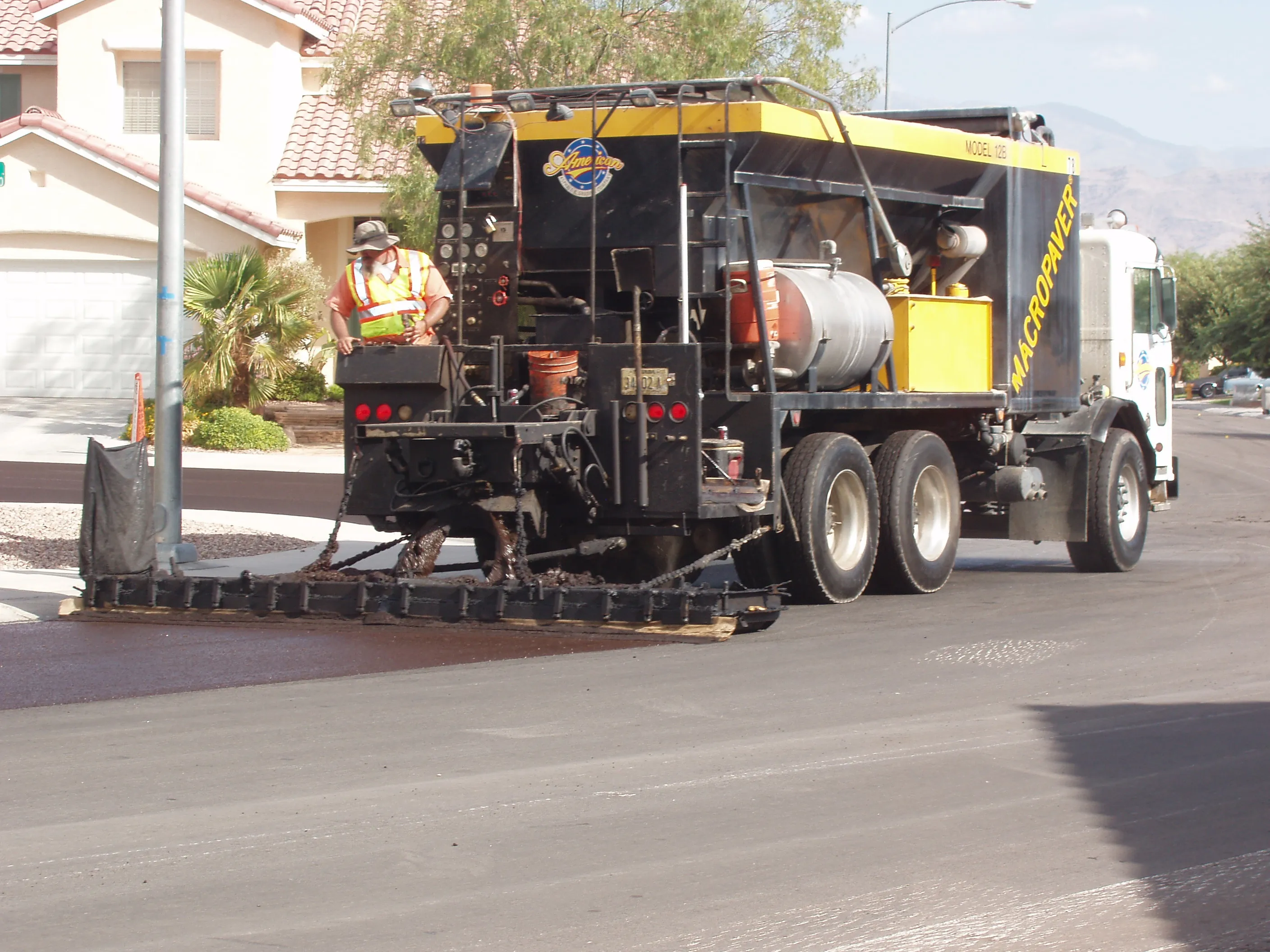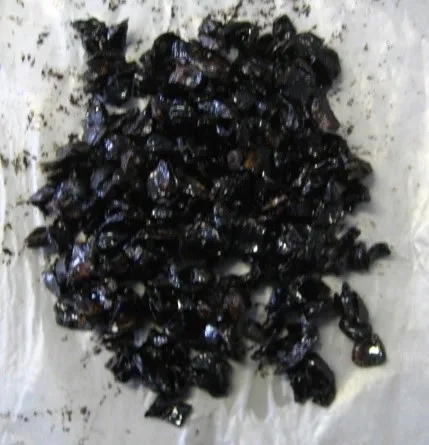High quality standards and high quality equipment have led to one company building a strong market share in a part of the US with high requirements on finish. The Pavement Maintenance Division of American Asphalt and Grading is based in Las Vegas, Nevada, but is highly active right across the states of California, Utah, Nevada and Arizona. This operation is run by Eric Reimschiissel and was established as a division from the parent company in 2001 and has since grown to have two paving/patching crews, two s
March 14, 2012
Read time: 3 mins

RSSHigh quality standards and high quality equipment have led to one company building a strong market share in a part of the US with high requirements on finish.
The Pavement Maintenance Division of American Asphalt and Grading is based in Las Vegas, Nevada, but is highly active right across the states of California, Utah, Nevada and Arizona. This operation is run by Eric Reimschiissel and was established as a division from the parent company in 2001 and has since grown to have two paving/patching crews, two slurry seal crews, four seal coat crews, a crack seal crew, and a striping crew. One of the crews laid over 4,690tonnes of black paving in a 10 hour period and the firm uses360 VSS Macropaver to meet its high production needs, saying that these have proven productive, reliable and durable, as well as delivering high uptime and low downtime.
Quality is important in cities such as Las Vegas as Southern Nevada has many requirements from agencies that are stricter than other areas due to fast growth. Because Las Vegas is a major tourist attraction, the city expects streets and public lots to be in good condition. Reimschiissel said, "Officials will come out and look at a patch you do in the street. They are stricter than any other place I have worked." Some of the requirements for asphalt quality include neat seams and having to grind off oil spots. Crews also have to be neat and make sure nothing is left on the kerb line. "If you get anything on the curb line, you have to clean it off," Reimschiissel said. "Here they also have dust requirements." The firm has used the machines to good effect on a key contract in Las Vegas. "We were low bidders on the City of Las Vegas slurry seal project, which as far as I know is the largest slurry seal project ever bid in the nation," Reimschiissel said. "It's a five year renewable contract. They lay type 1, type 2, and type 3 slurries, mostly type 1 and type 2. They are laid on residential streets. We do somewhere between 10-20 streets a day." The firm carries out an array of services and solutions for asphalt pavement maintenance, including slurry seal, seal coating, crack sealing, asphalt paving, asphalt repairs, and pavement marking and striping. All in all, the operation lays some 293,000tonnes of asphalt on highways, city streets, subdivisions, and homeowner association streets, as well as paving commercial, industrial, and residential parking lots.
The Pavement Maintenance Division of American Asphalt and Grading is based in Las Vegas, Nevada, but is highly active right across the states of California, Utah, Nevada and Arizona. This operation is run by Eric Reimschiissel and was established as a division from the parent company in 2001 and has since grown to have two paving/patching crews, two slurry seal crews, four seal coat crews, a crack seal crew, and a striping crew. One of the crews laid over 4,690tonnes of black paving in a 10 hour period and the firm uses
Quality is important in cities such as Las Vegas as Southern Nevada has many requirements from agencies that are stricter than other areas due to fast growth. Because Las Vegas is a major tourist attraction, the city expects streets and public lots to be in good condition. Reimschiissel said, "Officials will come out and look at a patch you do in the street. They are stricter than any other place I have worked." Some of the requirements for asphalt quality include neat seams and having to grind off oil spots. Crews also have to be neat and make sure nothing is left on the kerb line. "If you get anything on the curb line, you have to clean it off," Reimschiissel said. "Here they also have dust requirements." The firm has used the machines to good effect on a key contract in Las Vegas. "We were low bidders on the City of Las Vegas slurry seal project, which as far as I know is the largest slurry seal project ever bid in the nation," Reimschiissel said. "It's a five year renewable contract. They lay type 1, type 2, and type 3 slurries, mostly type 1 and type 2. They are laid on residential streets. We do somewhere between 10-20 streets a day." The firm carries out an array of services and solutions for asphalt pavement maintenance, including slurry seal, seal coating, crack sealing, asphalt paving, asphalt repairs, and pavement marking and striping. All in all, the operation lays some 293,000tonnes of asphalt on highways, city streets, subdivisions, and homeowner association streets, as well as paving commercial, industrial, and residential parking lots.









